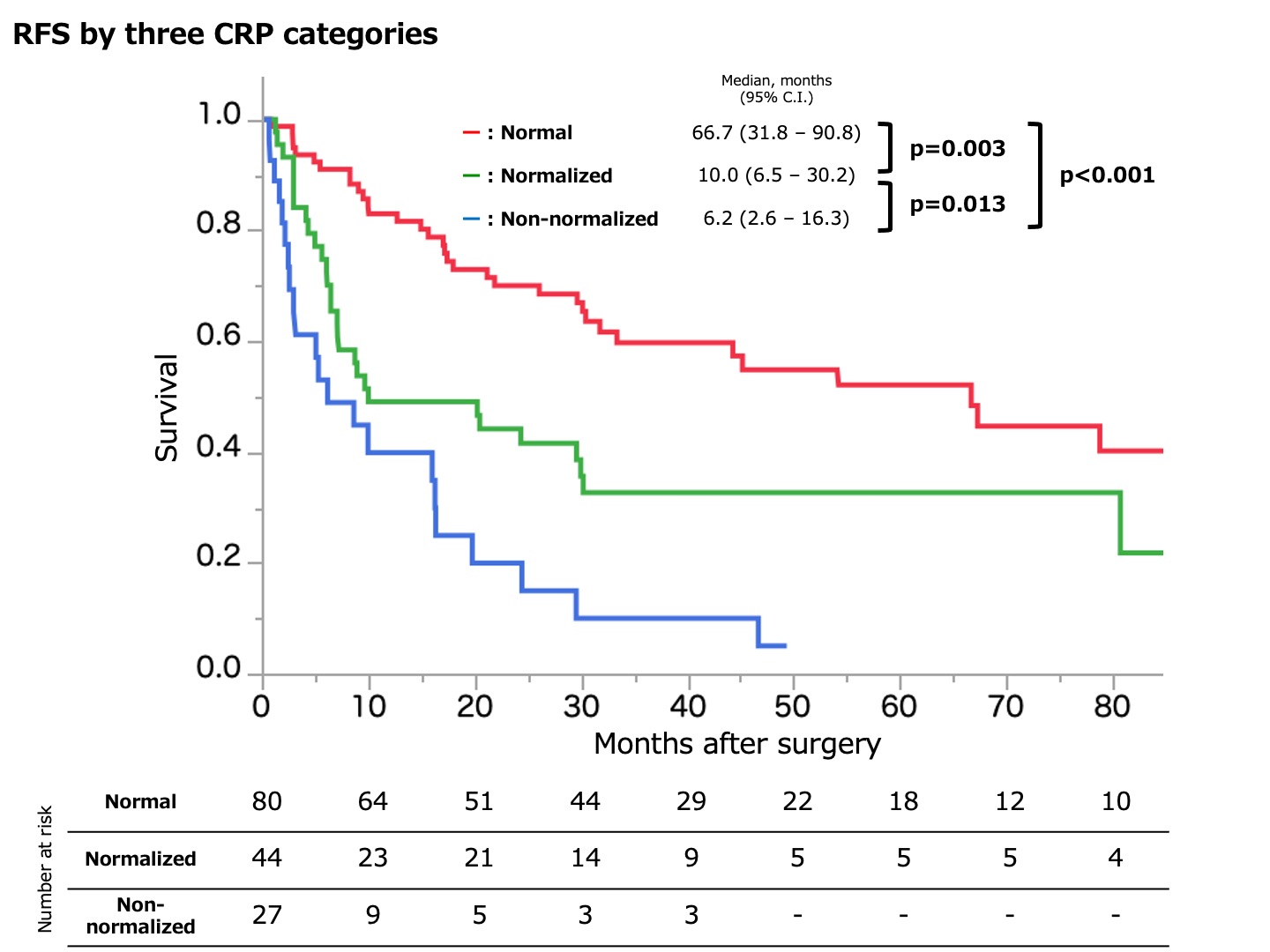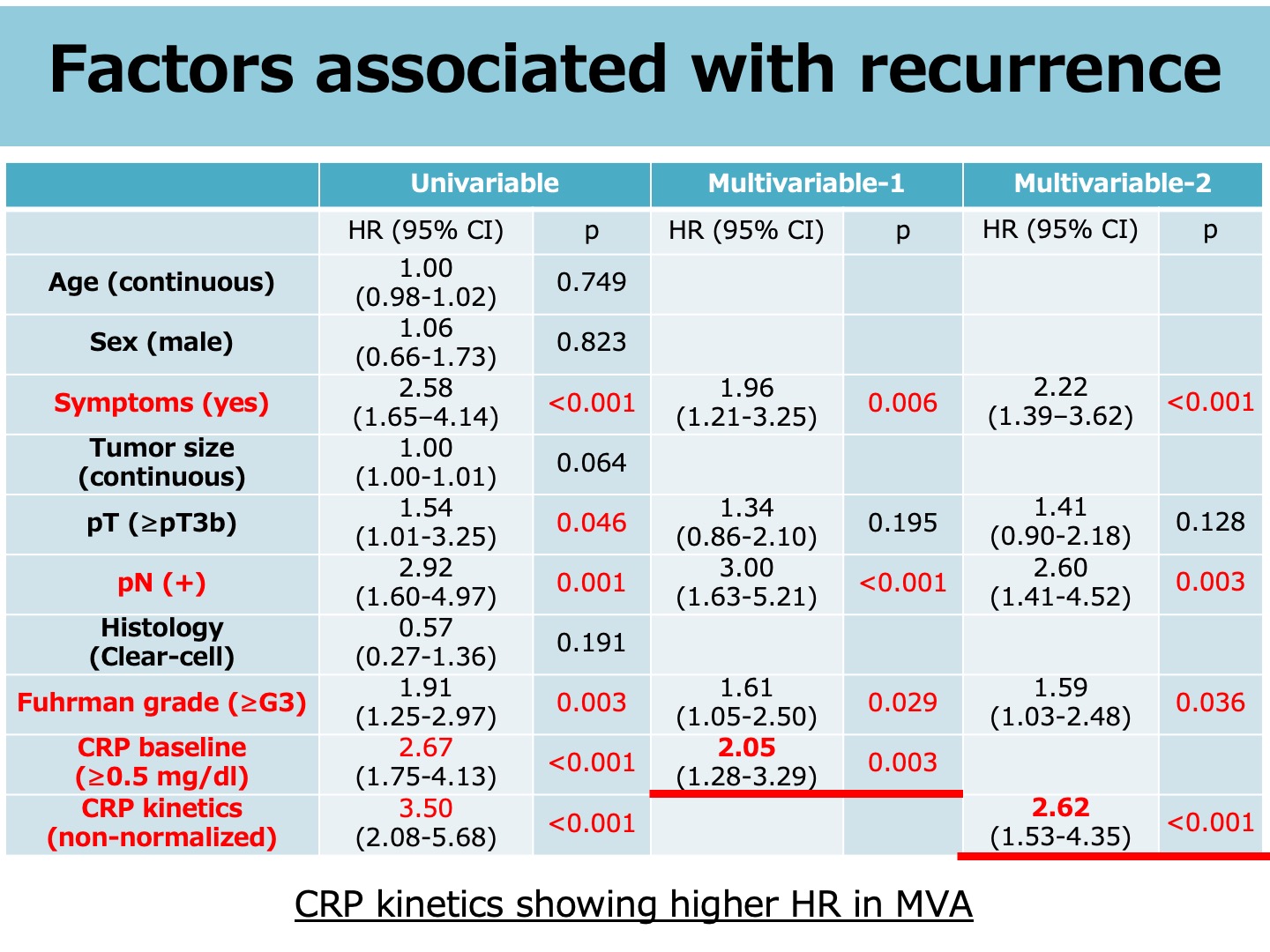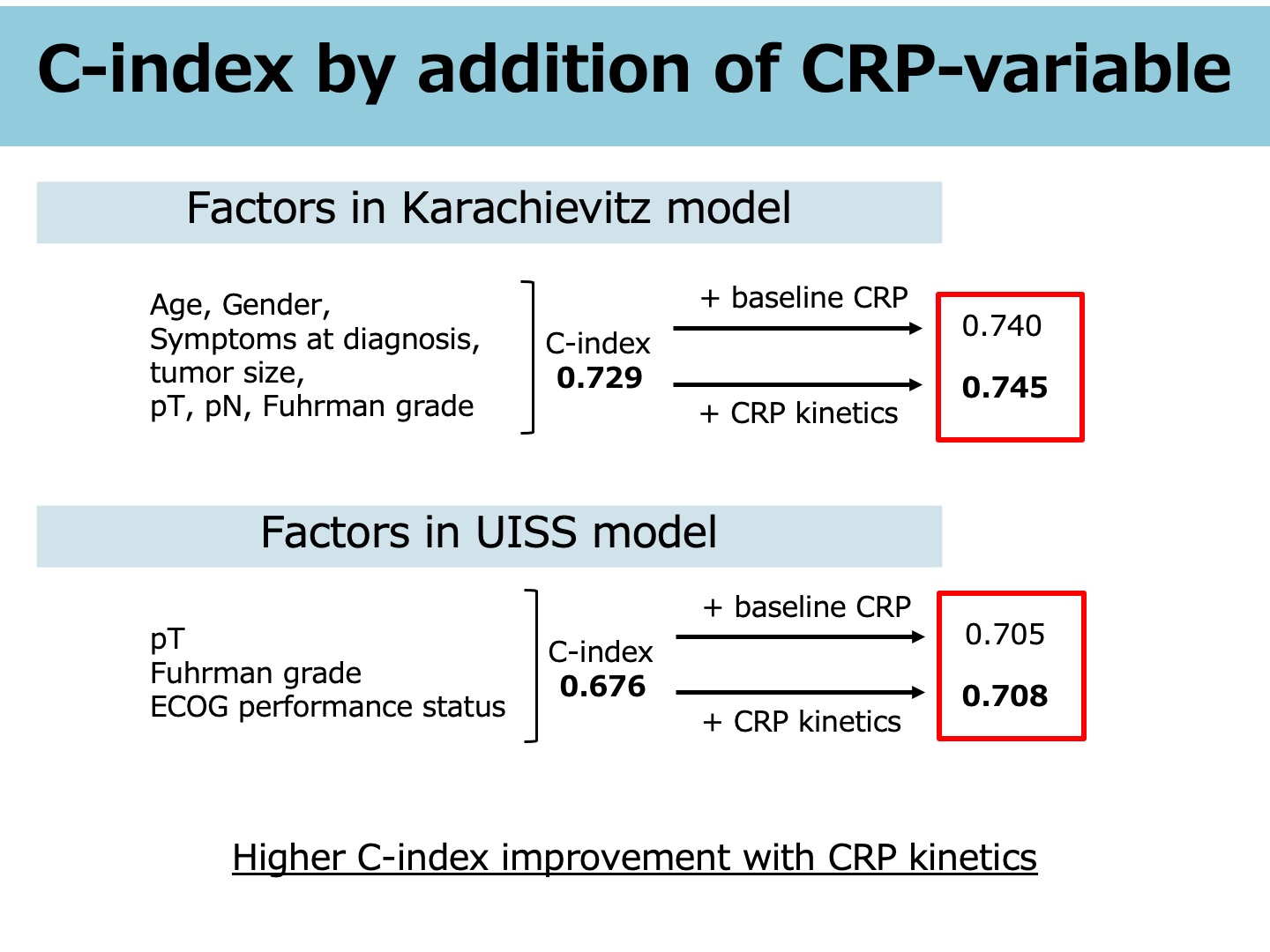Back
Poster, Podium & Video Sessions
Moderated Poster
MP12: Kidney Cancer: Advanced (including Drug Therapy) I
MP12-01: C-reactive protein kinetics to predict recurrence after radical surgery for high-risk renal cell carcinoma
Friday, May 13, 2022
1:00 PM – 2:15 PM
Location: Room 222
Yudai Ishiyama*, Tsunenori Kondo, Hiroki Ishihara, Arakawa, Japan, Kazuhiko Yoshida, Junpei Iizuka, Kazunari Tanabe, Toshio Takagi, Tokyo, Japan

Yudai Ishiyama, MD
Tokyo Women's Medical University
Poster Presenter(s)
Introduction: With new options appearing in adjuvant setting, clinical biomarkers to predict recurrence after radical surgery for high-risk renal cell carcinoma (hrRCC) is in need but scarcely investigated. We aimed to verify the predictive value of perioperative C-reactive protein (CRP) kinetics on RCC recurrence.
Methods: We retrospectively evaluated 154 patients who underwent curative surgery for high-risk (=pT3 or N0-2 and M0) RCC at two institutions between 2008 and 2020. Serum CRP (mg/dL) within one months before (baseline) and within three months (post) after surgery were obtained. Patients were classified into Normal ( <0.5 at baseline) and High (=0.5 at baseline) according to baseline CRP. The High group were further classified into Normalized ( <0.5 at post) or non-normalized (=0.5 at post), and recurrence-free survival (RFS) was compared between groups. Factors for RFS were further analyzed using multivariable Cox hazards model. C-index for accuracy of predicting RFS was compared with and without addition or CRP kinetics to preexisting models.
Results: The RFS was significantly shorter in High (n=72, 46.8) compared to Normal (n=82, 53.2%) group (9.7 vs. 66.7 months, p<0.001). Within High group, non-normalized (n=27, 17.5%) patients showed significantly shorter RFS compared to Normalized (n=45, 29.2%) group (6.2 vs. 10.0, p=0.013). In the multivariable analysis both baseline CRP (HR: 2.05, p=0.003) and kinetics (HR: 2.62, p<0.001) effectively predicted RFS, with HR being higher for kinetics. Higher C-index improvement was observed with CRP kinetics than the baseline CRP levels when added to factors included in Karakiewicz and UCLA Integrated Staging System models.
Conclusions: CRP kinetics effectively predict RCC recurrence after surgery, and may aid in decision-making for adjuvant systemic therapy.
Source of Funding: None.



Methods: We retrospectively evaluated 154 patients who underwent curative surgery for high-risk (=pT3 or N0-2 and M0) RCC at two institutions between 2008 and 2020. Serum CRP (mg/dL) within one months before (baseline) and within three months (post) after surgery were obtained. Patients were classified into Normal ( <0.5 at baseline) and High (=0.5 at baseline) according to baseline CRP. The High group were further classified into Normalized ( <0.5 at post) or non-normalized (=0.5 at post), and recurrence-free survival (RFS) was compared between groups. Factors for RFS were further analyzed using multivariable Cox hazards model. C-index for accuracy of predicting RFS was compared with and without addition or CRP kinetics to preexisting models.
Results: The RFS was significantly shorter in High (n=72, 46.8) compared to Normal (n=82, 53.2%) group (9.7 vs. 66.7 months, p<0.001). Within High group, non-normalized (n=27, 17.5%) patients showed significantly shorter RFS compared to Normalized (n=45, 29.2%) group (6.2 vs. 10.0, p=0.013). In the multivariable analysis both baseline CRP (HR: 2.05, p=0.003) and kinetics (HR: 2.62, p<0.001) effectively predicted RFS, with HR being higher for kinetics. Higher C-index improvement was observed with CRP kinetics than the baseline CRP levels when added to factors included in Karakiewicz and UCLA Integrated Staging System models.
Conclusions: CRP kinetics effectively predict RCC recurrence after surgery, and may aid in decision-making for adjuvant systemic therapy.
Source of Funding: None.




.jpg)
.jpg)